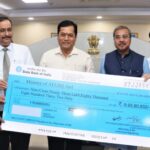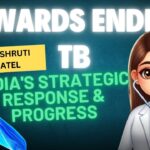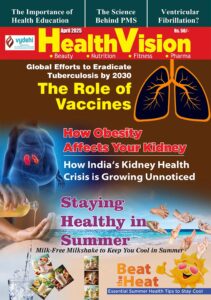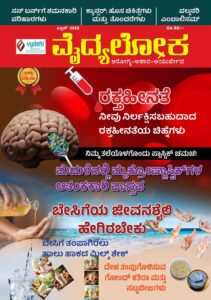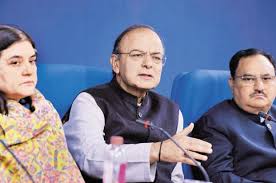

The government aims to reduce current level of stunting from 38.4% to 25%, reduce under nutrition and low birth by 2% and also aims to reduce anemia in young children and women by 3% per year till 2020 with the help of aanganwadi workers and front line community health workers or ASHAs (Accredited social health activists) and auxiliary nurse midwives (ANMs). The use of smartphones and tablets by workers and their supervisors will help in mapping growth and nutrition levels. This will help in reducing the paperwork considerably.
Currently a pilot has been carried out in 50,000 anganwadis in 162 districts for 42 lakh beneficiaries where the workers used smartphones to record attendance, weight and height of children who come to the centres as well as click photos of the hot-cooked meals served there. The chart plotted by these data will indicate the general health progress report and will trigger an sms to the parents when the data shows alarming results. The pilot project itself has helped the government identifying nearly 12000 malnourished children and makes several interventions in advance.
National Nutrition Mission has a six-tier real-time reporting system, which includes an anganwadi worker, anganwadi supervisor, child development project officer, a district official, an official appointed by the chief secretary at the state level and officials at Centre. The Aadhaar card is mandatory to avail this benefit with children less than 5yrs will be registered on their mother’s Aadhaar card and such children will have to reenroll after turning 5. But those who still don’t have aadhaar card will get proper assistance to provide aadhaar card. An incentive of INR 500 has been announced for every aanganwadi worker along with various group based incentives. The biometric will be considered as the identification criteria and will remove any scope of corruption and fake beneficiaries.
Maneka Gandhi also hinted at a possible shift in the role of anganwadis in preparing and delivering take-home ration and hot cooked food through a uniform system.
The government also provides education, food and primary healthcare under the Integrated Child Development Scheme (ICDS). Angnwadi centres are also linked to the ICDS. Under this scheme, children between 6 months to 3 years, as well as pregnant and lactating mothers till six months after birth, get take-home ration. Children between 3 years and 6 years get hot-cooked meals.








